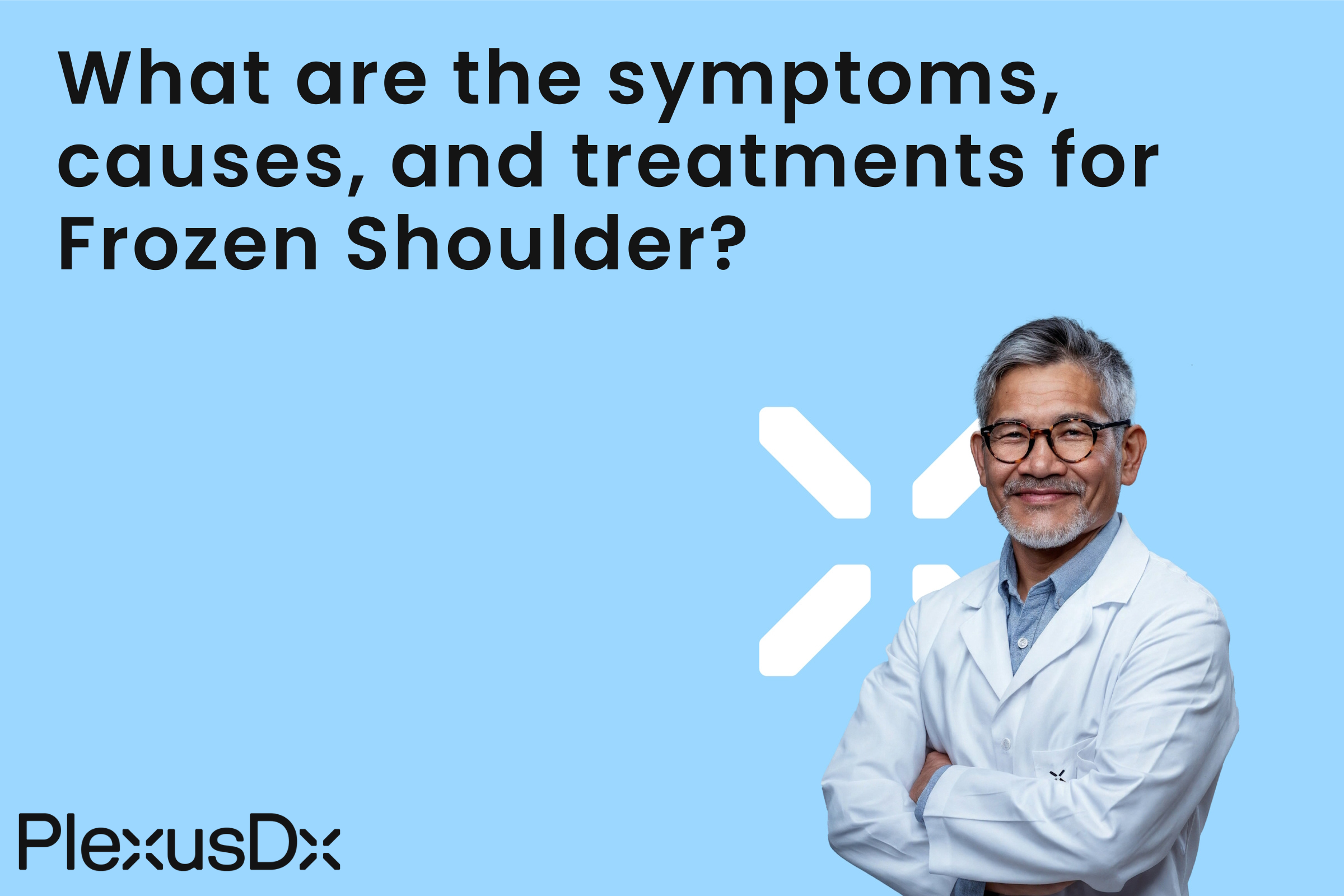Frozen Shoulder: Understanding Symptoms, Causes, and Treatments
Do you know what it feels like to have shoulder pain and stiffness that continues to build up as time passes? Consider how challenging life becomes when you can't move your shoulder without restrictions because it affects your everyday routines and life quality. Frozen shoulder or adhesive capsulitis is a widespread health issue which presents substantial challenges to those affected. The blog post will examine frozen shoulder by investigating its symptoms alongside its causes and possible treatments. We aim to reveal the hidden aspects of this condition as we search for effective management strategies.
Symptoms of Frozen Shoulder
Frozen shoulder results in a progressive thickening and tightening of the connective tissue that surrounds the shoulder joint. Joint movement becomes restricted by this tightening which produces stiffness and discomfort. Frozen shoulder patients frequently experience dull or aching shoulder pain together with significant range of motion restrictions.
Phases of Frozen Shoulder
Frozen shoulder generally develops through three distinct phases which include the freezing stage followed by the frozen stage and then the thawing stage. At the freezing stage, patients experience increased pain along with reduced mobility in the shoulder. The frozen stage brings stabilized symptoms but leads to increased stiffness. The thawing stage represents a period of slow restoration to normal shoulder movement.
Causes of Frozen Shoulder
The onset of frozen shoulder is more frequently linked to episodes of shoulder immobilization after surgery or injury than it appears without an obvious cause. Adhesive capsulitis develops as a result of prolonged shoulder joint immobilization which makes addressing the root causes crucial for effective treatment.
Treatments for Frozen Shoulder
Frozen shoulder treatment aims to improve joint movement while reducing pain levels. Physical therapy functions as a fundamental element for flexibility gains through specific exercise routines. Healthcare providers may suggest over-the-counter pain relievers, anti-inflammatory medications, or steroid injections as part of pain management strategies to help reduce discomfort. When conservative treatments do not work for severe cases arthroscopic surgery may be considered to release the joint capsule and improve shoulder movement.
Genetic Factors and Frozen Shoulder
Research shows that although genetics might contribute to frozen shoulder susceptibility, evidence for a direct genetic connection is currently insufficient. Scientists must conduct further studies to develop a deeper comprehension of the genetic foundations affecting this condition. Although researchers continue to study the genetic model of frozen shoulder current treatment methods mainly focus on physical therapy and personalized symptom management.
Conclusion
A deep comprehension of frozen shoulder complexities leads to better management strategies that enhance patient quality of life. Early symptom treatment combined with a full physical therapy and pain management strategy helps individuals better manage adhesive capsulitis challenges. Shoulder pain and stiffness that persists might benefit from personalized genetic insights through Precision Health & Wellness tests available at PlexusDx. Begin taking proactive actions now to achieve improved shoulder health along with enhanced mobility. Discover how to overcome frozen shoulder and achieve improved shoulder function together with less pain. PlexusDx opens up a world of potential health benefits which allows you to start a path to better wellness.

Share:
Why are some good at reading faces while others struggle?
Percentage of cannabis users affected by Cannabis Addiction & role of genetic factors?